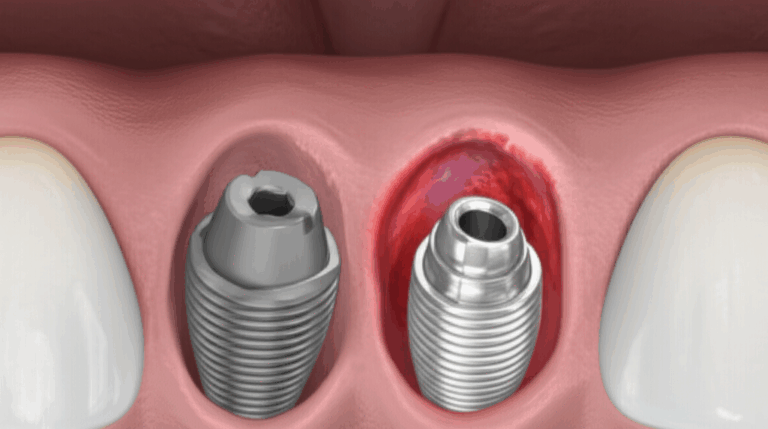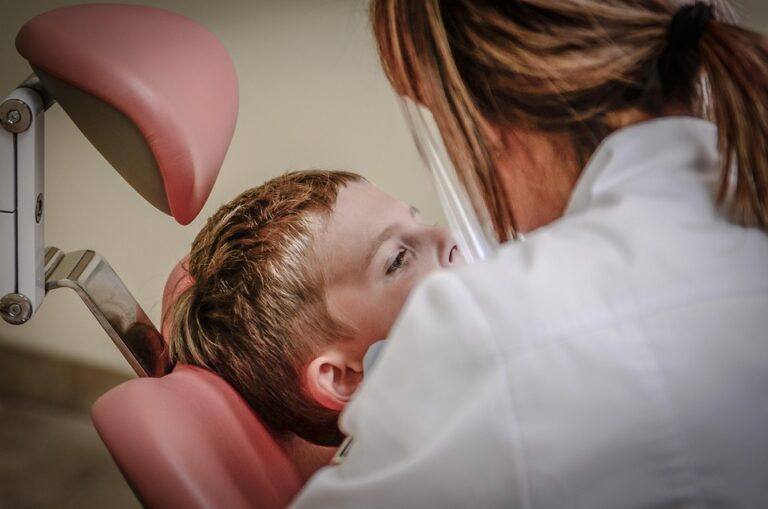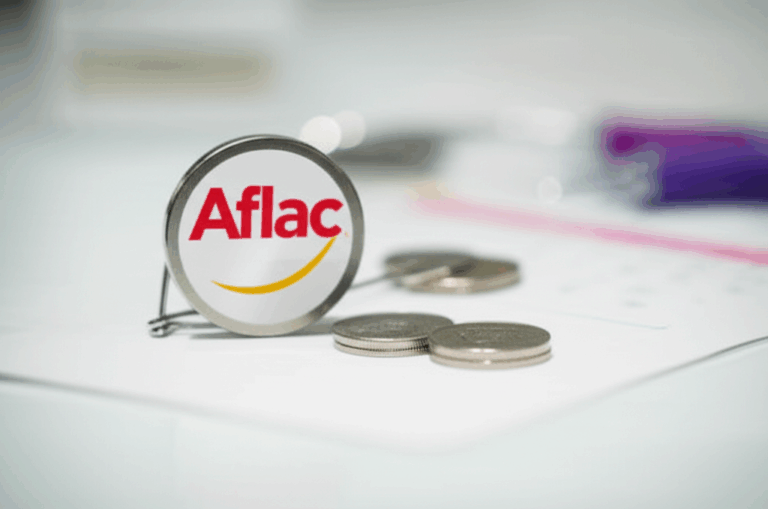
Can a Dental Hygienist Become a Dentist? (Yes, Here’s How!)
Thinking about moving up in your dental job? This guide shows how a dental hygienist can become a dentist. I’ll go over the steps, what you need, costs, and challenges so you can make a good, clear choice. Whether you like helping people smile or you want to learn more, this article shows you all the steps. Read on for real info—nothing extra—so you know what to expect and how to succeed.
Table of Contents
What’s the Dental Hygienist to Dentist Path?
Let’s get right to it. You’re a dental hygienist, so you’ve already spent lots of time with patients. But maybe you’re asking, “Can I become a dentist?” Yes, you can! Many hygienists want to move up in their job, get better pay, or try something new. You do need to start over in some ways. Dental schools like your experience, but they want everyone ready for tough science and dentist skills.
Is This Career Change Really Possible?
Totally. You’re not alone—lots of people try this. The American Dental Education Association (ADEA) sees “non-traditional” students all the time. If you’ve worked as a Registered Dental Hygienist (RDH), you’re ahead. You already know a lot about teeth and how a dental office works.
Why It’s Good to Know
You have real skills. You’ve seen real patients. You know the difference between things like biology and what really happens in a mouth. Dental schools like this. But you’ll have to finish any missing science classes or get your bachelor’s degree if you don’t have one yet.
Why Would You Want to Become a Dentist?
Moving from hygienist to dentist isn’t just about getting paid more. Dentists can do more—they check, treat, do small surgeries, run an office, and lead a team. Some want more hard work; others want to own a business.
Perks of Being a Dentist
- More Control: You choose how to treat people.
- Higher Pay: Dentists make at least twice as much as hygienists.
- More Things to Do: You can learn and offer more services.
- Leadership: You can run a dental office or teach others.
- Set Your Schedule: Work when you want or start your own place.
Big Picture
You may already like helping patients and making teeth healthy. As a dentist, you make the big choices, help more people, and do harder cases.
What’s Required for Dental School?
Getting into dental school can seem tricky. But here it is, step by step.
Main Things You Need
- Biology (with labs)
- General Chemistry
- Organic Chemistry
- Physics
- Biochemistry
- English and Math (usually needed)
- Psychology and Sociology (sometimes good to have)
If your dental hygiene degree didn’t cover all this, you’ll need more classes. Some schools say online science is fine, but most like in-person labs.
Why This Matters
Schools want to see you can handle hard classes, not just cleaning teeth or taking x-rays.
What Tests Do You Need to Take?
You need one main test: the Dental Admission Test (DAT). Everyone has to take it. It’s tough, almost four hours long, and covers:
- Natural Science: Biology, General Chemistry, Organic Chemistry
- Perceptual Ability: See and solve puzzles
- Reading: Understand science passages
- Math: Basic math problems
A score around 20-21 is common for students who get in. You need to study, even if you know teeth.
Tips to Do Better
- Use official books and tools.
- Try practice tests to get ready for the timing.
- Work most on your weakest areas; even experienced dental workers can find physics tricky!
- Join a study group for more help.
How Important Is Experience?
As a hygienist, you already know a lot. You work with patients, use tools, and see dental problems. Dental schools like this but want more, too.
What to Work On
- Shadow Dentists: Watch other dentists work for at least 50-100 hours. See different treatments and ask questions.
- Volunteer: Help at local clinics or community spots. It shows you care about more than just dental work.
- More Clinic Time: Your work as a RDH is great, but get some time outside your job, too—see new things that you haven’t tried yet.
What Do Dental Schools Look For?
It’s not all about grades. Schools want the whole you. They check:
- Personal Statement: Why do you want to be a dentist, not just stay a hygienist? Maybe you want more than just cleaning teeth.
- References: People who can talk about your science work, and dentists who know your work style.
- Talking and Teamwork: You must work well with others. Leading a team or teaching new hygienists helps you stand out.
How Does the Application Process Work?
Applying is a step-by-step job. Most schools use the ADEA AADSAS—a big online application. Here’s what you do:
The Main Steps
- Application: Fill in all information, schools, grades, and DAT scores.
- Transcripts: Make sure every class is listed.
- Personal Statement: Share your story going from hygiene to dentist.
- References: Needed from school and clinic jobs.
- Interviews: If picked, you’ll do an interview. Sometimes, it’s about how you’d handle different situations.
Good Ideas
Don’t miss the deadlines. Start early! Make sure all papers and scores get sent in. Look at the ADEA website for tips.
What Is Dental School Like?
Dental school is four years long—no way to skip years, even with lots of experience. You’ll get a Doctor of Dental Surgery (DDS) or Doctor of Medicine in Dentistry (DMD). They mean the same thing.
How It Goes
Years 1-2: Mostly:
- Science: Anatomy, Physiology, Microbiology, Biochemistry, Pharmacology
- Labs: Learn how to make crowns, bridges, and use tools
- Practice on fake teeth or mannequins
Years 3-4: Working with real patients:
- Give real care, with help from teachers
- Learn tough stuff: emergencies, root canals, and surgery
After School
Once done, you must:
- Take the National Board Dental Exams (NBDE) or INBDE
- How you use patient skills in a real test
- Last, apply to get a license in your state
How Much Does It Cost?
Let’s talk about money. Dental school costs a lot. See the table below.
Cost Table
| Category | Public (In-State) | Public (Out-of-State) | Private |
|---|---|---|---|
| Tuition & Fees (Yearly) | $60K – $70K | $80K – $90K | $75K – $100K+ |
| Total 4 Years | $250K – $500K | $320K – $500K+ | $350K – $500K+ |
| Living Expenses | Changes | Changes | Changes |
| Avg. Debt (U.S.) | $305K – $315K | $305K – $315K | $305K – $315K |
Sources: ADEA, ADA, U.S. Bureau of Labor Statistics
How to Pay
- Loans: Mostly federal, sometimes private
- Scholarships: Maybe from a school or state
- Grants: Not very common
It does cost a lot. Still, dentists usually make $160,000–$180,000 each year. Hygienists make about $80,000–$85,000. So, the debt is hard but can be paid off.
What Are the Big Challenges?
This is not easy. You’ll deal with:
- Time: About 6 years if you need more college classes, plus 4 years of dental school
- Money Problems: Living off loans is hard if you have a family
- Hard Classes: Dental school is harder than hygiene school
- No Job for a While: You have to stop working as a hygienist during school
Problem: It’s easy to get stuck or worry you’re behind others.
Harder Part: But staying where you are can stop you from getting better pay, more work, and a bigger role.
Solution: Plan ahead. Talk to others who have done this. Get help from groups, friends, and family.
What Makes Hygienists Stand Out?
You don’t start from zero. As a hygienist, you:
- Are great with dental tools and simple treatments
- Know how to talk to and help patients feel calm
- Get how an office works—booking, cleaning, working as a team
These aren’t just tiny skills—they can help you with harder things like taking better tooth shapes or new ways to help your patients.
Plus, you made it through a tough hygiene school.
How Do You Get Licensed?
After dental school, you’re almost ready. You need:
Some states have extra rules—check them before you start.
What Jobs Can You Get As a Dentist?
Lots of doors open. As a new dentist, you might:
- Work in a general dental office
- Pick a special area—like braces or kids’ teeth
- Help with public programs or in dental clinics
- Teach others about dental care
Later, you might open your own office. You might even help run places that use new tools or special labs.
Is This the Right Path for You?
Let’s stop for a minute. This is not for everyone. Ask yourself:
- Why do I want to become a dentist?
- Can I do years of hard classes?
- Am I ready to spend time and money?
- Do I like working with my hands and helping people?
If you say yes, that’s great! Talk to a pre-dental advisor. Shadow dentists and see what they do. Read about teeth information and look up info from ADA and ADEA.
FAQs
Can a dental hygienist skip dental school years?
Usually, no. Most hygienists need to finish all four years unless they were dentists in another country.
Do hygienists get paid during dental school?
No, there’s no pay. Most use loans, savings, or family help during those years.
Are there special “hygienist to dentist” programs?
No shortcut programs in the U.S., but being a hygienist does make your application look better.
How old are dental students from hygiene backgrounds?
Many start in their late 20s or 30s. Don’t worry about age—schools like experience.
Main Points to Remember
- Dental hygienists can become dentists—it’s a normal and respected path.
- You need a bachelor’s degree, science classes, and a good DAT score.
- Schools like your dental experience but want you to finish every requirement.
- It takes time and is expensive, but the rewards—pay, control, new skills—are real.
- Dental school is four years, hard, but gives you lots of chances to learn.
- At the end, you need to pass state tests to work as a dentist.
- Always talk with advisors, make plans about money, and get ready to work hard—but also get ready to win!
Ready for the next step? It’s not easy, but your skills and hard work can lead to a great new dental job. If you still want to learn more, keep reading about dental care and aesthetics or ask dental mentors. You can do it!








